NEURO REHABILITATION
HOME → NEURO REHABILITTION
NEURO REHABILITATION (Excellence at kalarickal)
- Stroke rehabilitation
- Multiple sclerosis
- Dementia
- Parkinson’s disease
- Transverse Myelitis and Guillain-Barré Syndrome (GBS)
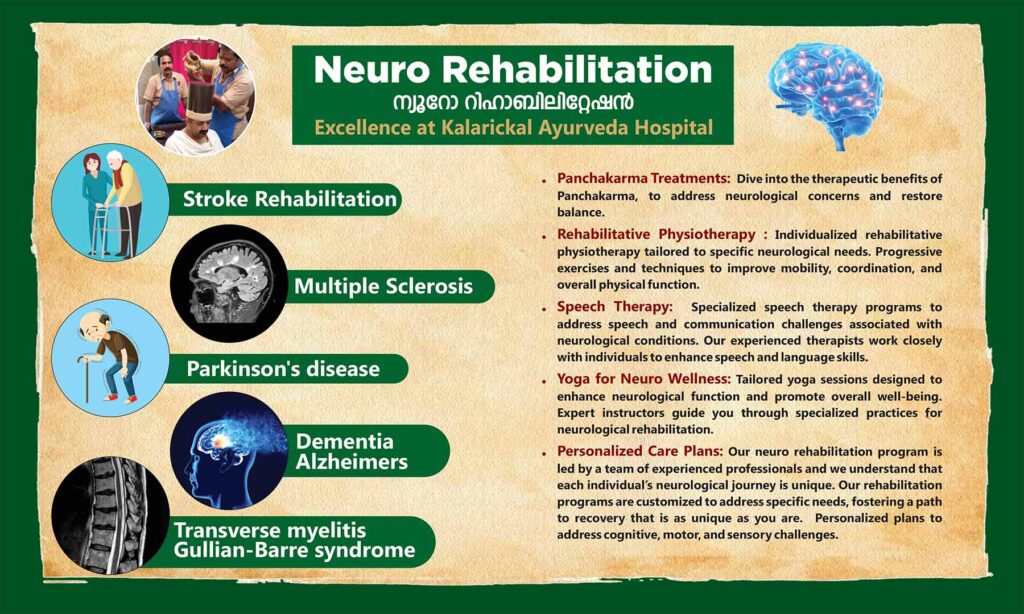
Stroke Rehabilitation Program
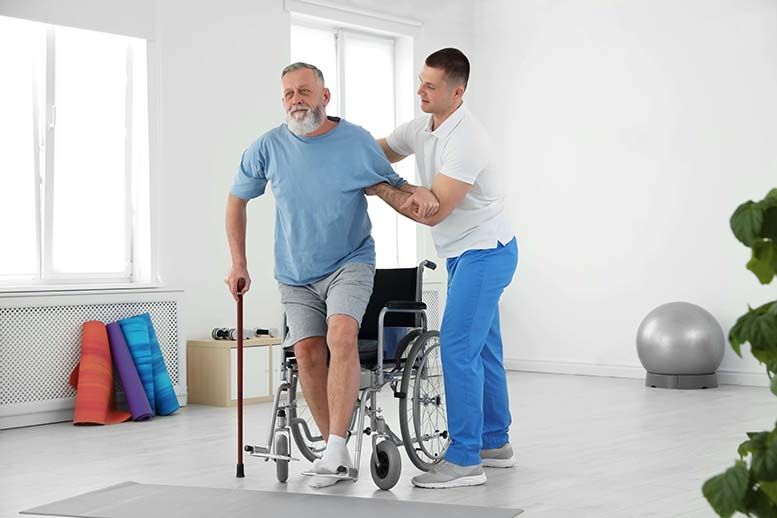
At Kalarickal Ayurveda Hospital, our specialized Neuro Rehabilitation program is dedicated to providing comprehensive care for individuals recovering from stroke. Our approach integrates scientific diagnosis, personalized treatment plans, and a holistic blend of traditional Ayurvedic therapies with modern rehabilitation techniques.
1. Scientific Diagnosis:
Our experienced team utilizes advanced diagnostic tools such as MRI and other investigative methods to conduct a thorough assessment. This allows us to precisely identify the cause of the stroke, the specific brain areas affected, and the extent of disability.
2. Physical Examination:
A detailed physical examination is conducted to assess muscle strength, coordination, speech, and gait. This examination helps us understand the individualized needs of each patient, forming the basis for a tailored rehabilitation plan.
3. Individualized Treatment Plan:
Based on the diagnosis and physical examination, a personalized treatment plan is crafted to address the unique challenges faced by each patient. The goal is to optimize recovery and improve overall quality of life.
4. Multidisciplinary Approach:
Our Neuro Rehabilitation program adopts a multidisciplinary approach, involving specialists in Ayurveda, rehabilitation physiotherapy, yoga therapy, and speech therapy. This collaborative effort ensures a comprehensive and well-rounded treatment experience.
5. Utilizing Ayurvedic Therapies:
Ayurveda, with its principles, plays a key role in stroke rehabilitation. Panchakarma therapies are employed to achieve Neural plasticity, while rejuvenating therapies aim to restore balance. These therapies are customized to the individual’s constitution, promoting overall well-being.
6. Yoga Therapy:
Tailored yoga programs are designed to enhance flexibility, improve muscle strength, and address coordination challenges. Yoga practices also contribute to mental well-being, aiding in the emotional aspect of rehabilitation.
7. Speech Therapy:
Speech therapy is incorporated to address any speech-related challenges resulting from the stroke. Therapists work closely with patients to improve articulation, language skills, and overall communication.
8. Rehabilitative Physiotherapy:
Our dedicated Physiotherapy Unit at Kalarickal Ayurveda Hospital is equipped with state-of-the-art facilities, including electrical therapy modalities and specialized exercise programs, to enhance stroke recovery. Our goal is to optimize functional independence and improve the overall quality of life for individuals on their rehabilitation journey.
a. Electrical Therapy:
Electrical Muscle Stimulation (EMS): Utilizing EMS, our physiotherapists stimulate targeted muscles to enhance strength, reduce muscle atrophy, and improve coordination.
Transcutaneous Electrical Nerve Stimulation (TENS): TENS is employed for pain management, helping alleviate discomfort commonly associated with stroke recovery.
Functional Electrical Stimulation (FES): FES is applied to stimulate specific nerves and muscles, aiding in the restoration of functional movements.
b. Exercise Therapy:
Tailored Exercise Programs: Our physiotherapists design individualized exercise plans that focus on regaining muscle strength, improving coordination, and enhancing overall mobility.
Range of Motion (ROM) Exercises: Gentle and targeted exercises help improve joint flexibility and reduce stiffness, promoting ease of movement.
Balance and Coordination Training: Specialized exercises are incorporated to enhance balance and coordination, reducing the risk of falls and improving overall stability.
Gait Training: We implement gait training programs to improve walking abilities, ensuring a smooth and coordinated gait pattern.
.
C. Continuous Monitoring and Adjustment:
Progress is closely monitored, and the rehabilitation plan is adjusted as needed to accommodate changes in the individual’s condition, ensuring ongoing improvement and adapting to evolving needs.
d. Empowering Independence:
Our approach to physiotherapy is not only about recovery but also about empowering stroke survivors to regain independence in their daily lives. Functional exercises are integrated to enhance activities of daily living (ADLs).
e. Patient Education:
We believe in empowering individuals and their families with knowledge. Our physiotherapists provide education on exercises that can be continued at home, promoting ongoing progress beyond hospital visits.
At Kalarickal Ayurveda Hospital, our Physiotherapy Unit plays a pivotal role in stroke recovery by combining electrical therapy modalities with personalized exercise programs. The integration of these approaches aims to maximize the effectiveness of rehabilitation and contribute to the overall well-being of stroke survivors.
9. Continuous Monitoring and Adjustments:
Throughout the rehabilitation process, our team continuously monitors progress and makes necessary adjustments to the treatment plan. This ensures that the rehabilitation journey is dynamic and responsive to the evolving needs of each individual.
Our Stroke Rehabilitation Program at Kalarickal Ayurveda Hospital is rooted in a deep understanding of Ayurvedic principles and modern rehabilitation science. By combining these approaches, we strive to provide a supportive and effective environment for individuals on their journey to recovery after a stroke.
MULTIPLE SCLEROSIS
Multiple Sclerosis Management at Kalarickal Ayurveda Hospital:
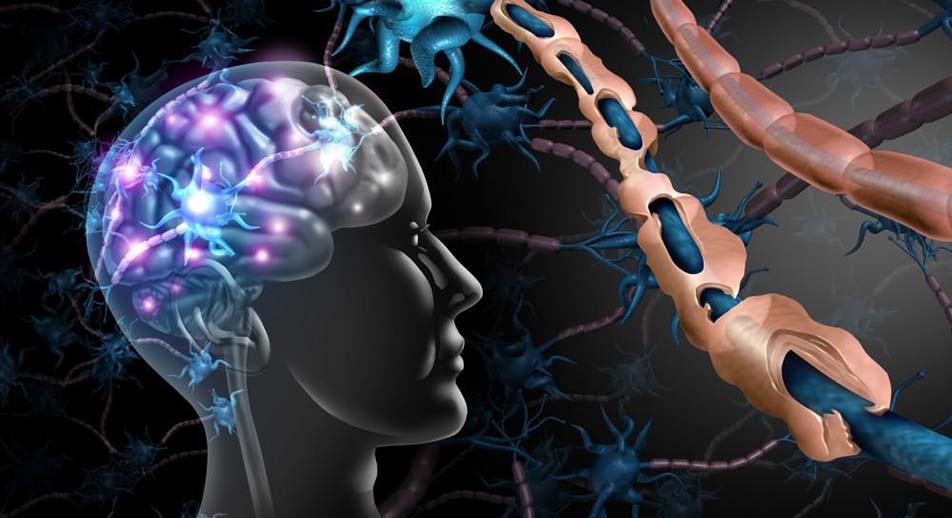
At Kalarickal Ayurveda Hospital, we understand the challenges posed by multiple sclerosis (MS), a demyelinating disorder affecting the central nervous system. Our comprehensive approach involves scientific diagnosis, personalized Ayurvedic treatment, and a dedicated rehabilitation program to enhance neural plasticity and improve the overall quality of life for individuals with MS and reduces relapses.
1. Scientific Diagnosis:
MRI Imaging: Utilizing advanced MRI imaging, our experienced team examines demyelinating plaques in the brain and spinal cord, providing a detailed
understanding of the extent and location and active or dormant status of lesions.
Clinical History and Physical Examination: Thorough clinical history-taking and physical examinations, including assessments of eyesight, muscle strength, and coordination, contribute to the accurate diagnosis and staging of multiple sclerosis.
2. Ayurvedic Treatment for MS:
Preventing Relapses: Our Ayurvedic physicians prescribe personalized herbal formulations and therapies aimed at preventing relapses and minimizing the progression of the disease.
Improving Neural Plasticity: Ayurvedic treatments, including Rasayana therapies, are employed to enhance neural plasticity, promoting the adaptability of the nervous system and facilitating improved functioning.
3. Management of Uhthoff Phenomenon:
Avoiding Heat Therapy: Recognizing the sensitivity of individuals with MS to heat (Uhthoff phenomenon), our scientific approach involves refraining from traditional heat therapies in Panchakarma.
Udvarthanam (Powder Massage): Instead, we utilize Udvarthanam, a specialized powder massage that stimulates nerve endings, improves circulation, and alleviates muscle stiffness without the use of excessive heat.
4. Rehabilitation Program:
Rehabilitative Physiotherapy: Our dedicated physiotherapy unit offers tailored exercise programs focusing on enhancing muscle strength, coordination, and overall mobility. The rehabilitation program is adjusted based on the individual’s evolving needs.
5. Holistic Approach:
Dietary Guidelines: Ayurvedic dietary principles are integrated, providing guidelines to support overall well-being and address specific concerns related to MS.
Lifestyle Modifications: Lifestyle recommendations aim to reduce stress and promote a balanced and harmonious living environment.
6. Continuous Monitoring and Adjustments:
Regular Follow-ups: Patients are regularly monitored, and treatment plans are adjusted as needed to ensure ongoing improvement and address any emerging symptoms.
7. Patient Education:
Empowering Patients: Education is a key aspect of our approach. We empower patients with knowledge about their condition, the benefits of Ayurvedic treatments, and strategies for self-care.
Our approach to managing multiple sclerosis at Kalarickal Ayurveda Hospital combines traditional Ayurvedic wisdom with modern diagnostic tools and rehabilitation techniques. The goal is to provide a holistic and individualized treatment plan that addresses the unique needs of each person living with multiple sclerosis.
PARKINSON'S DISEASE
Parkinson's Disease Management at Kalarickal Ayurveda Hospital:
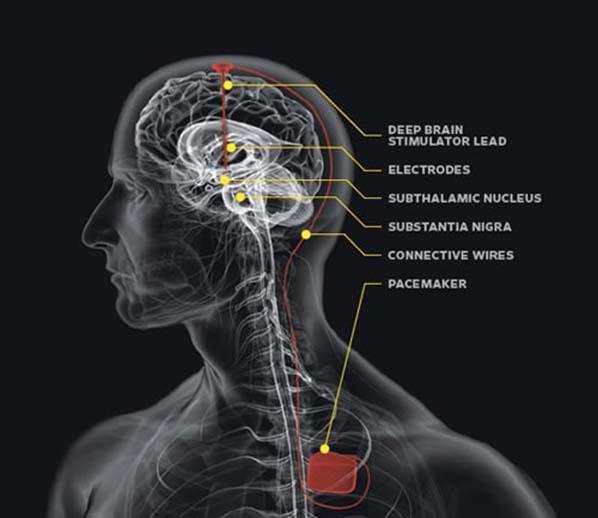
At Kalarickal Ayurveda Hospital, our holistic approach to managing Parkinson’s disease focuses on combining internal medicines, Ayurvedic Panchakarma treatments, and therapeutic techniques. The goal is to enhance the quality of life for individuals with Parkinson’s by addressing symptoms such as stiffness, rigidity, tremors, and bradykinesia (slowness of movements).
1. Internal Medicines:
Natural Levodopa Supplementation: Herbal preparations, including ingredients like Kapikachu, are used to provide a natural form of levodopa. This helps in managing the symptoms associated with Parkinson’s disease and improving overall motor function.
2. Ayurvedic Panchakarma Treatments:
Udvarthana (Medicated Powder Massage): Udvarthana, a specialized medicated powder massage, is employed to reduce stiffness and enhance flexibility.
The therapeutic properties of the herbal powders help in alleviating symptoms associated with rigidity.
Oil Massages: Ayurvedic oil massages are administered to improve circulation, reduce muscle tension, and promote relaxation. Different oils told in Ayurveda for Kampa vata(Tremor disorders) and techniques are chosen based on individual needs.
Kizhis (Poultices): Specific poultices, known as Kizhis, are prepared with medicated herbs and applied to targeted areas. This helps in reducing stiffness and addressing muscle-related symptoms.
Siro Dhara -Nervous System Calming: The rhythmic pouring of warm medicated oil onto the forehead is thought to have a soothing effect on the nervous system, promoting relaxation and reducing stress.
Enhancing Mental Clarity: Sirodhara is believed to enhance mental, clarity and focus, which can be beneficial for individuals experiencing cognitive challenges associated with Parkinson’s disease.
Yoga for Parkinson’s:
Mind-Body Connection: Yoga, with its emphasis on the mind-body connection, serves as a complementary therapy for individuals with Parkinson’s. Mindful movements and breath work are integrated to promote relaxation and mental focus.
Improving Flexibility and Balance: Specific yoga postures and stretches help improve flexibility and balance, addressing common challenges associated with Parkinson’s disease.
Stress Reduction: Mindfulness and meditation techniques within yoga practices contribute to stress reduction, promoting emotional well-being.
Adapted Practices: Yoga sessions are tailored to accommodate the unique needs and abilities of individuals with Parkinson’s, ensuring safety and effectiveness.
2. Physiotherapy for Parkinson’s:
Targeted Exercise Programs: Physiotherapy plays a crucial role in managing Parkinson’s symptoms. Tailored exercise programs focus on enhancing muscle strength, coordination, and mobility.
Gait and Balance Training: Physiotherapists work on gait training to improve walking patterns and reduce the risk of falls. Balance exercises contribute to overall stability.
Functional Movement Training: Exercises mimic everyday activities, promoting functional movements and independence in daily life.
Bradykinesia Management: Specific physiotherapy techniques are employed to address bradykinesia, helping individuals overcome slowness of movement.
3. Disease Modification and Progression:
Our treatments aim at delaying the progression of Parkinson’s disease and modifying its course to some extent. This involves a comprehensive approach to manage both motor and non-motor symptoms.
4. Personalized Treatment Plans:
Individualized treatment plans are crafted based on the unique constitution, symptoms, and needs of each patient. This ensures that the therapies administered are tailored to address specific concerns.
5. Lifestyle and Dietary Guidance:
Ayurvedic principles guide dietary recommendations and lifestyle modifications to support overall well-being. This includes specific dietary guidelines that complement the treatment approach.
6. Continuous Monitoring and Follow-ups:
Regular follow-ups and continuous monitoring of the patient’s progress allow for adjustments to the treatment plan as needed. This ensures that the approach remains dynamic and responsive to the individual’s changing health status.
7. Holistic Well-being:
Our approach encompasses not only the management of physical symptoms but also focuses on the emotional and mental well-being of individuals with Parkinson’s disease. Supportive therapies aim to enhance the overall quality of life.
Integrated Approach: Yoga and Physiotherapy in Parkinson’s plus Management
At Kalarickal Ayurveda Hospital, our commitment to holistic well-being extends to an integrated approach that combines the benefits of Ayurveda yoga and physiotherapy for individuals managing Parkinson’s disease. This synergy aims to address the physical, mental, and emotional aspects of the condition, enhancing overall quality of life.
Combined Benefits:
Enhanced Motor Function: The combined approach of Ayurveda yoga and physiotherapy enhances motor function, contributing to improved mobility and a more fluid range of movements.
Emotional Well-being: Both yoga and physiotherapy contribute to emotional well-being by reducing stress, improving mood, and fostering a positive outlook.
Comprehensive Care: Integrating these therapies ensures a comprehensive care plan that addresses various dimensions of Parkinson’s disease, from physical symptoms to emotional and mental well-being.
4. Individualized Sessions:
Personalized Plans: Each individual receives personalized yoga and physiotherapy sessions, adapted to their specific needs and capabilities.
Regular Assessments: Progress is continuously monitored, and adjustments are made to the integrated plan to ensure it aligns with the individual’s evolving health status.
5. Empowering Independence:
Encouraging Self-Care: Individuals are educated on exercises and yoga practices that can be continued at home, empowering them to actively participate in their well-being.
At Kalarickal Ayurveda Hospital, our integrated approach brings together the therapeutic benefits of Ayurveda yoga and physiotherapy, providing a well-rounded care plan for individuals managing Parkinson’s disease. This approach is designed to promote functional independence, enhance overall quality of life, and foster a sense of empowerment in those on their journey with Parkinson’s.
DEMENTIA
Innovative Dementia Management at Kalarickal Ayurveda Hospital:
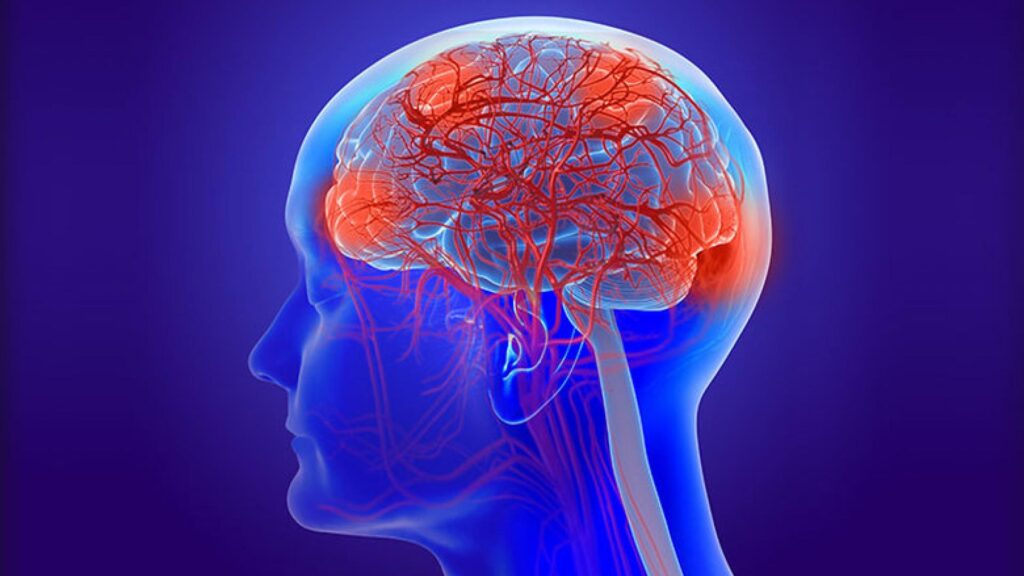
The expertise and dedication of Dr. Shibu in the field of dementia treatment. Dr. Shibu’s journey towards becoming a renowned figure in dementia care began with a passion ignited during his post-graduation years.
Research Focus: Dementia
During his post-graduation studies, Dr. Shibu delved deeply into the realm of dementia, recognizing its profound impact on individuals and their families. This led him to select dementia as a focal point for his research endeavors, setting the stage for his future contributions to the field.
Innovative Approach: Turmeric Juice as a Therapeutic Aid
As part of his academic pursuits, Dr. Shibu dedicated his efforts to exploring innovative treatment modalities. His dissertation thesis centered on the utilization of turmeric juice, administered through the ancient practice of nasya (nasal instillation of medicine). This pioneering approach showcased Dr. Shibu’s commitment to thinking outside the box in his quest to alleviate the symptoms of dementia.
Clinical Excellence: Treating Patients with Compassion
Beyond the confines of academia, Dr. Shibu’s expertise truly shines in his clinical practice. He has treated numerous patients grappling with dementia, providing compassionate care and personalized treatment plans tailored to their unique needs. Through his hands-on experience, Dr. Shibu has garnered invaluable insights into the complexities of dementia management.
Educator and Mentor
Dr. Shibu’s dedication to the field extends beyond the clinic walls. He has served as a beacon of knowledge and guidance for aspiring healthcare professionals at all levels of education. From undergraduate to postgraduate students, Dr. Shibu has imparted his wisdom through engaging lectures and interactive sessions, fostering a new generation of dementia-aware practitioners.
At Kalarickal Ayurveda Hospital, we have developed an innovative and comprehensive treatment protocol for dementia, with a special focus on Alzheimer’s disease and multi-infarct dementia. Our approach combines Ayurvedic principles, specialized Panchakarma therapies, holistic care, and caregiver training to provide effective and compassionate management.
1. Medicinal Treatment:
Neuroprotective Medicines: We offer Ayurvedic medicines that aim to prevent the degeneration of neurons and enhance overall brain function, targeting the root cause of dementia.
Turmeric Nasal Therapy (Nasya): Nasya with the juice of haridra (turmeric) is employed, known for its anti-inflammatory and neuroprotective properties, contributing to the delay in disease progression.
2. Specialized Panchakarma Therapies:
Siro Basthi: This therapy involves retaining medicated oils on the head, promoting nourishment to the brain and supporting cognitive functions.
Talapothichil: Application of medicated paste on the scalp, tailored to address specific imbalances related to dementia.
Abhyanga (Oil Therapies): Full-body oil massages to promote relaxation, improve circulation, and support overall well-being and agitation seen in dementia patients.
Udvarthanam (Powder Massage): Specialized powder massages aimed at reducing stiffness, enhancing nerve function, and promoting relaxation.
Sashtikashali Pinda Swedam: A therapeutic treatment involving the application of warm rice poultices to nourish and revitalize the neuronal system.
4. Yoga and Brain Exercises:
Yoga Practices: Tailored yoga sessions focus on gentle movements, breathing exercises, and meditation to promote mental clarity, reduce stress, and improve overall well-being.
Brain Exercises: Specific cognitive exercises are incorporated to stimulate the brain, enhancing cognitive function and memory.
5. Physiotherapy and Meditation:
Physiotherapy: Targeted physiotherapy sessions aim at improving mobility, coordination, and overall physical well-being.
Meditation: Mindfulness meditation techniques are utilized to calm aggression, reduce anxiety, and create a sense of inner peace.
6. Caregiver Training:
Handling Difficult Situations: Caregivers are trained on how to effectively manage and cope with challenging situations related to dementia patients.
Emotional Support: Caregivers are provided with emotional support and guidance to navigate the complexities of caring for individuals with dementia.
7.Continuous Monitoring and Follow-ups:
Regular Assessments: The progress of dementia patients is closely monitored, and treatment plans are adjusted based on individual responses and evolving needs.
Our innovative dementia management protocol at Kalarickal Ayurveda Hospital has been well-received in the sphere of dementia care, focusing on delaying disease progression, enhancing cognitive functions, and providing comprehensive support for both patients and caregivers.
Comprehensive Management of Transverse Myelitis and Guillain-Barré Syndrome at Kalarickal Ayurveda Hospital:
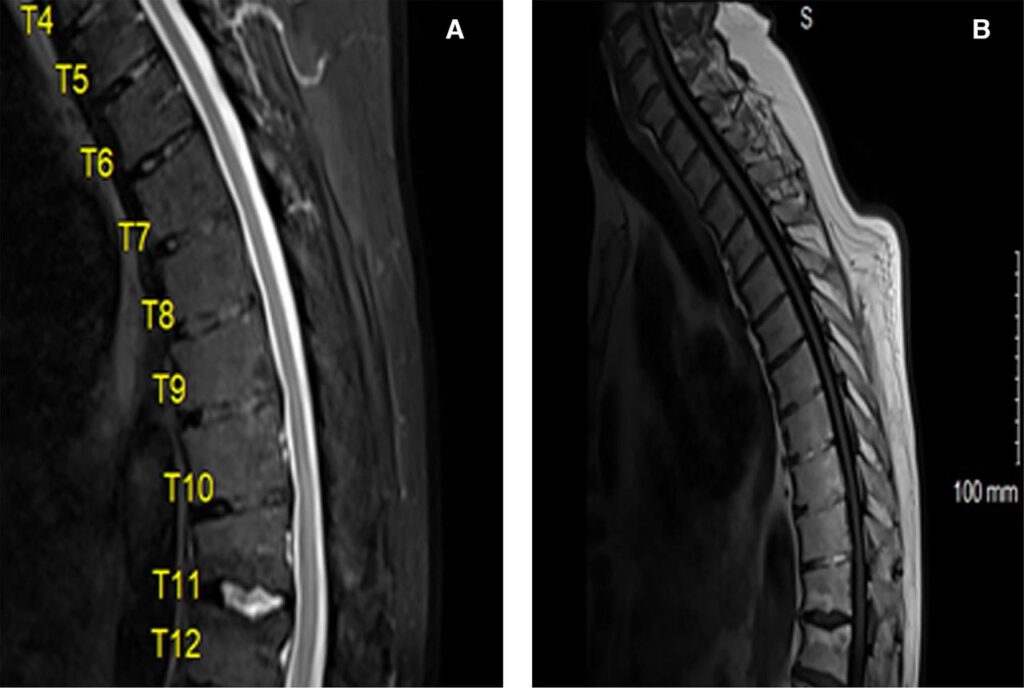
At Kalarickal Ayurveda Hospital, we offer a holistic approach to managing neurological conditions like Transverse Myelitis and Guillain-Barré Syndrome (GBS). Our treatment protocol integrates Ayurvedic therapies, yoga, and physiotherapy to facilitate neural plasticity, enhance rehabilitation, and provide comprehensive care for patients recovering from these conditions.
1.Post-Allopathic Initial Management:
After Immunoglobulins and Steroids: Following the initial management at allopathic hospitals, including immunoglobulins and steroids, patients are transitioned to Kalarickal Ayurveda Hospital for further rehabilitation.
2.Ayurvedic Rehabilitation Therapies:
Udvarthana (Powder Massage): Specialized powder massages are administered to stimulate nerve endings, improve circulation, and reduce stiffness, promoting neural plasticity.
Oil Massage (Abhyanga): Full-body oil massages contribute to muscle relaxation, improve joint mobility, and support overall well-being.
Pizhichil: This unique therapy involves the synchronized pouring of warm medicated oil over the body while simultaneously massaging. It provides nourishment to the nervous system and aids in relaxation.
Bastis (Enemas): Medicated oil and decoction enemas are administered to support the overall health of the nervous system.
3.Yoga and Physiotherapy:
Yoga Practices: Customized yoga sessions focus on gentle movements, breathing exercises, and meditation to enhance overall well-being and support neural recovery.
Physiotherapy: Tailored physiotherapy sessions aim at improving muscle strength, coordination, and mobility, supporting the rehabilitation process.
4.Spincture Training:
Strengthening and Coordination: Specialized training is provided to strengthen and coordinate sphincters, addressing challenges related to bowel and bladder control.
5.Individualized Treatment Plans:
Tailored Approaches: Treatment plans are individualized based on the unique needs, symptoms, and recovery progress of each patient, ensuring a personalized and effective approach.
6.Immediate Intervention:
Miraculous Results: Early intervention immediately after the acute attack can yield remarkable results, as the nervous system is more receptive to therapeutic interventions.
7.Continuous Monitoring and Adjustments:
Regular Assessments: Patients are continuously monitored, and treatment plans are adjusted based on their progress and evolving needs.
Our integrated approach at Kalarickal Ayurveda Hospital aims not only to address the physical aspects of recovery but also to support mental and emotional well-being. By combining Ayurvedic principles, rehabilitative therapies, and supportive care, we strive to optimize the rehabilitation process and improve the overall quality of life for individuals recovering from Transverse Myelitis and Guillain-Barré Syndrome.
Varicose Vein Clinic at Kalarickal Ayurveda Hospital:
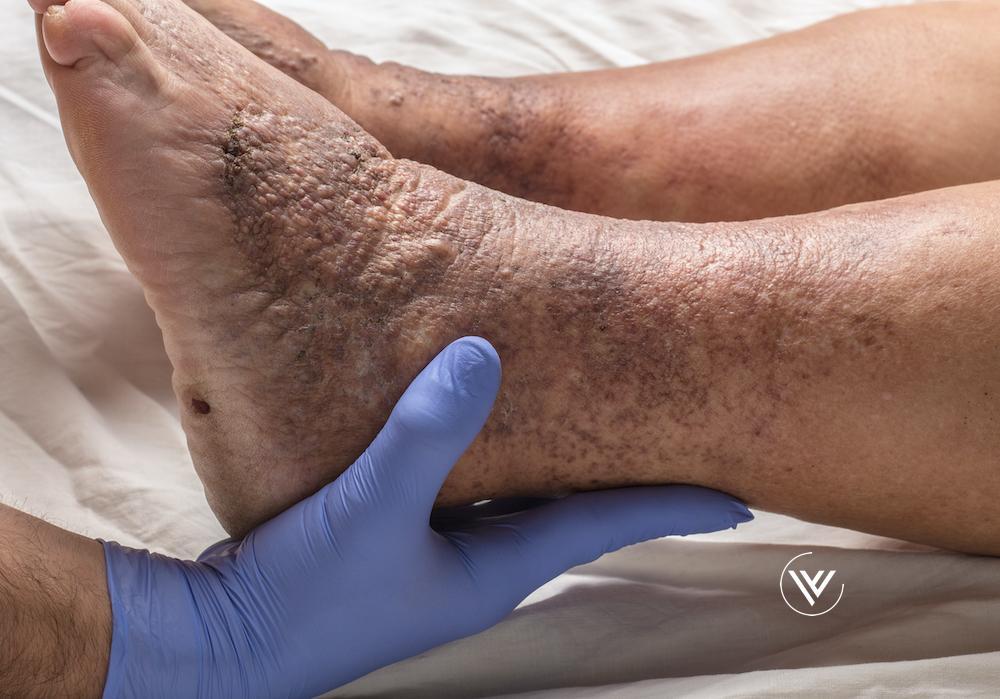
Kalarickal Ayurveda Hospital takes pride in offering a specialized Varicose Vein Clinic, providing effective Ayurvedic solutions for individuals dealing with varicose veins. Our clinic is equipped with experienced Ayurvedic practitioners who blend traditional wisdom with modern approaches to address the challenges posed by varicose veins.
1.Comprehensive Diagnosis:
Thorough Examination: Our experienced Ayurvedic physicians conduct a comprehensive examination to understand the extent and nature of varicose veins. This includes a detailed medical history, physical examination, and, if necessary, diagnostic imaging like Doppler study.
2.Ayurvedic Treatment Protocols:
Internal Medicines: Tailored Ayurvedic medications are prescribed to address the underlying imbalances and strengthen the vascular system.
External Therapies: Specialized external therapies such as Abhyanga (oil massage), and Nadi Swedana ,bloodletting, may be employed to enhance circulation and reduce inflammation.
3.Panchakarma Therapies:
Detoxification through Panchakarma helps eliminate toxins and promote a healthy circulatory system.
Vasti (Enema Therapy): Medicated enemas are administered to balance the doshas and support vascular health.
Sira vedha and jalookavacharana- Blood letting by leeches and venous suction are employed in the management.
4.Lifestyle and Dietary Guidance:
Personalized Plans: Our experts provide individualized lifestyle recommendations, including dietary guidance,weight reduction and exercise routines, to support long-term vascular health.
5.Yoga and Physical Therapy:
Aasanas and Exercises: Tailored yoga postures and physical exercises may be recommended to improve blood circulation and prevent further progression of varicose veins.
6.Varicose Vein Prevention:
Educational Programs: We believe in empowering individuals to take charge of their vascular health. Educational programs are conducted to raise awareness and offer preventive strategies.
7.Continuous Monitoring and Follow-up:
Ongoing Assessment: Regular check-ups and assessments allow us to monitor progress and make necessary adjustments to the treatment plan.
8.Patient Education and Support:
Counseling: Our team provides educational resources and counseling to help patients understand the condition, treatment options, and the importance of self-care.
